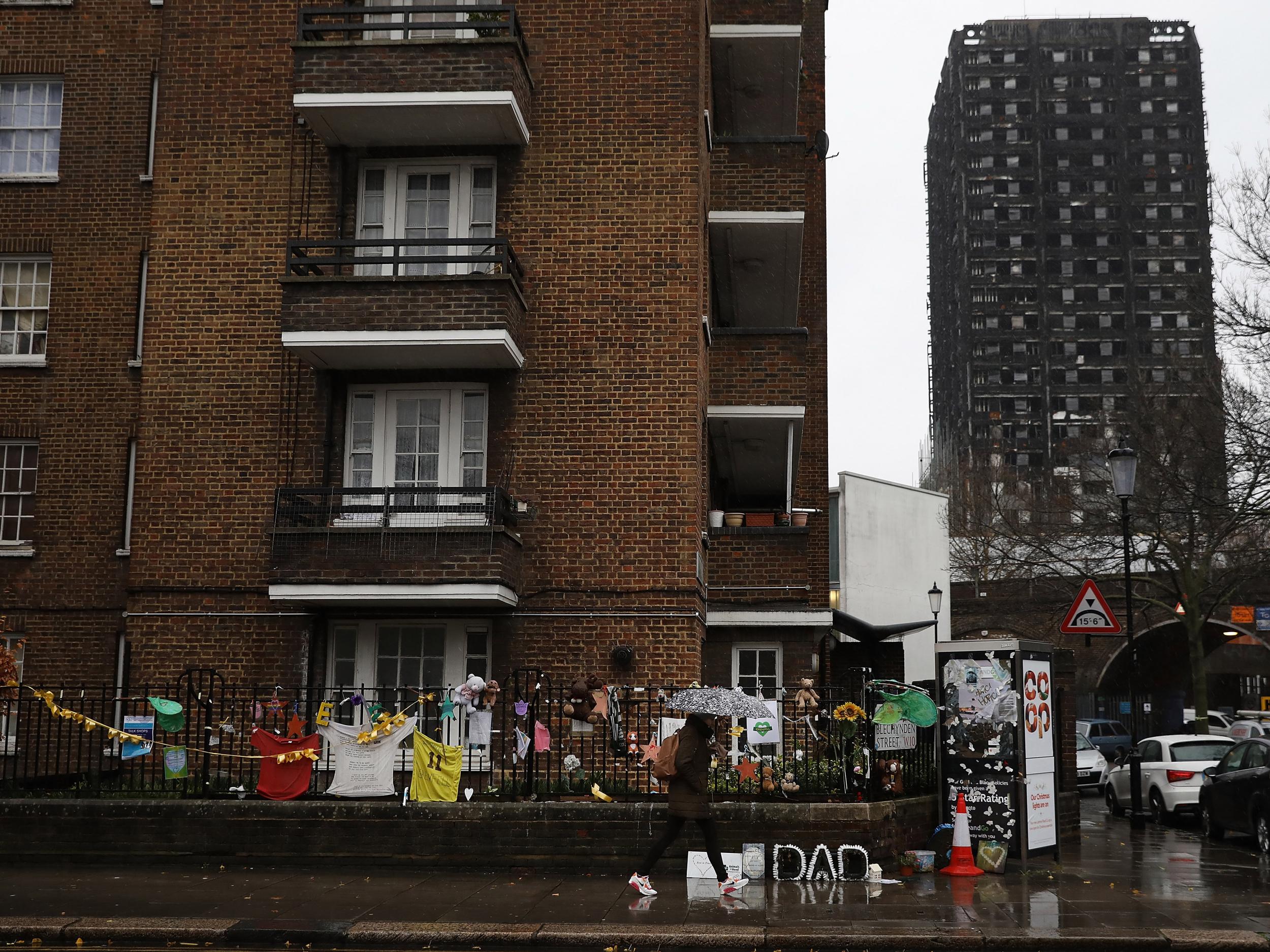Trauma of Grenfell Tower fire exacerbating drug problems among survivors, health experts warn
Exclusive: Distress caused by tragedy 'aggravates existing substance misuse problems'

Health experts have warned vulnerable survivors of the Grenfell Tower fire are using drugs and alcohol to help cope with the trauma.
There is evidence people with pre-existing substance abuse problems have spiralled further into addiction due to anxiety triggered by the fire.
Many have used government funding designed to help victims in the wake of the disaster to pay for drugs in order to cope, a mental health worker warned.
To help mitigate the problem, support workers with specialist substance misuse training have set up an evening drop-in clinic in a local church.
Jim O’Donnell, the deputy borough director of mental health at Central and North West London NHS Foundation Trust (CNWL), said distress caused by the fire had exacerbated existing drugs problems and caused some to drink heavily.
“There are some complexities around substance misuse — people with existing substance misuse issues are getting lots of money, or are increasing their alcohol consumption, for instance if they are isolated,” he said.
Asked what could be done to improve the situation, he said the service tried to “make sure people aren’t sitting around twiddling their thumbs, dwelling on stuff”.
“It’s not surprising” that people were turning to alcohol and drugs as they struggle to cope with what they saw on 14 June last year, he said, but added it was vital “people chose the way they spent their money”.
In the immediate aftermath of the tragedy, survivors whose homes were destroyed were eligible to receive £5,000. They are also able to claim a £10,000 “fresh start” fund, which is intended to pay for their entire relocation costs.
Financial guidance for victims is available from the Charity Commission and the Citizen’s Advice Bureau, but people in turmoil and without access to this information could easily have missed it.
CNWL estimates at least 11,000 people have been psychologically affected by the fire, which killed 71 people, half of whom have been registered for NHS-led mental health help.
Dr John Green, the psychologist leading the mental health response to the tragedy, said he expected anxiety and depression rates to rise in the wake of a disaster such as the Grenfell Tower fire.
“One of the reasons people use substances and alcohol and other drugs is they have a temporary relieving effect on anxiety. So when people become more anxious, then they have a tendency to increase their intake.
“Alcohol has a short-term relief of anxiety, but when it wears off, people become more anxious. If you drink heavily over a long period of time it increases your anxiety levels.
“That’s one of the reasons people escalate their drinking and it is really no different in this situation.”
This made it harder to treat people for underlying mental health problems. “Heavy use of substances complicates treatment, there’s no question about that,” Dr Green said.
Other issues such as insecure housing and the uncertainty of the ongoing public inquiry were also making efforts to treat people affected by the fire more difficult, he said.
Seven months on from the deadly fire, only 54 of 208 households evacuated from the area have moved into permanent accommodation, and 98 households remain in emergency accommodation, according to the North Kensington Law Centre.
Further details on the extent of the issue were not available, because drug services are under the jurisdiction of the Royal Borough of Kensington and Chelsea (RBKC), which said it was unable to put specialist staff up for interview.
But the council did say it had not recorded an overall rise in the number of people coming forward with substance misuse issues.
Subscribe to Independent Premium to bookmark this article
Want to bookmark your favourite articles and stories to read or reference later? Start your Independent Premium subscription today.
